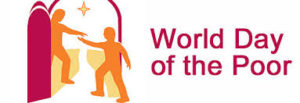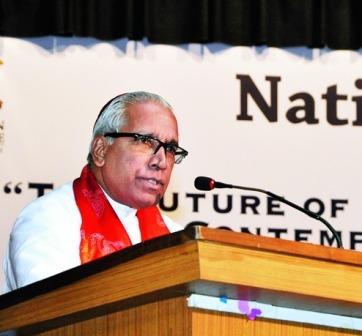Calcutta: Rights of Minorities guaranteed by the constitution are being systemically eroded, and those who manage the premier Christian educational institutions of the country are worried. However, the direction of Christian educational educations is clear: service of the poor, says Calcutta Archbishop Thomas D’Souza.
A national colloquium of Catholic educationists in Calcutta (16 November) heard an assertion tinged with anguish: “We have a right to be present and that very right is being challenged.”
Father George Thadathil, who was moderating a discussion on “the Future of Christian Higher Education and Contemporary Transitions in India”, was underscoring the rights the Constitution guaranteed to the minorities.
“In 1817, when the Hindoo College (now Presidency University) was started, there was a huge rush of the elite of the time that was looking for what was coming from the West…. And there was a lot of anxiety: ‘What’s happening to all these young people going to this new college?'”
The Christian educationists too felt similar anxiety then, wondering if the objective behind bringing in western education was to override “traditional ethos and culture”.
Two hundred years on, “we are on the reverse side of the same picture”, Father Thadathil said. “Is it again upsetting the kind of ethos and tradition that India wants to preserve?”
The colloquium was held at the auditorium of Don Bosco School, Park Circus, to mark the 80th year of Salesian College, Sonada, Darjeeling.
Several speakers expressed their anguish at the sense of anxiety and apprehension that has crept into the country in the past three years.
“The situation is changing very fast…. In the last three years, we have come across certain changes which we could never think of before,” said Valson Thampu, former principal of St. Stephen’s College, Delhi.
“We are passing through a stage when we need to be extremely circumspect. We can’t afford to stay static. We have to be cautious about the challenges. And we must understand our greatest challenge is to survive,” Thampu added.
Six speakers participated in the colloquium and almost all of them expressed dissatisfaction with the way the minorities were not being allowed to enjoy the rights granted to them in the Constitution.
Sister Christina Coutino, principal of Loreto College, Calcutta, said rights guaranteed by the Constitution were being breached. “There has been breach of ideals enshrined in our Constitution. Such as the Articles 29 and 30.”
Article 29 protects minorities from discrimination in admission to any institution receiving aid from the state and grants minorities the right to conserve their own distinct language, script or culture. Article 30 gives minorities the right to establish and administer educational institutions.
“Christians are known… for their social responsibilities, in education, health and social services, and in their mission to transform persons to better,” Sister Coutino added.
Archbishop of Calcutta Thomas D’Souza said “the identity of Christian education should be clear.”
“Like Mother Teresa had no confusion about her mission: to work for the poorest of poor.”



Education is, in a very special way, the concern of the Church, not only because the Church must be recognized as a human society capable of imparting education, but especially it has the duty of proclaiming the way of salvation to all men, of revealing the life of Christ to those who believe, and of assisting then with unremitting care so that they may be able to attain to the fullness of that life.
Christian colleges and schools aim to make man and women for others
Most Christians believe we are to help the poor but how are we to make good judgments on who to help and who not to help?When Jesus fed the thousands, He did not first check to see if they would be His disciples. He did not require them to come to Him for salvation. He simply filled a need by filling empty stomachs. Feeding the poor does not define the Christian; it is part of being a Christian.
Christian missionaries hopes to make schools the spiritual and religious centers. Through education they hope to eradicate the practices and behaviors of natives like Idol worship, polytheism, polygamy and many superstitions which were considered by them to be much uncivilized
Good Christian education recognises the unique, God given gifts and talents of the students and challenges them to achieve their amazing potential. Students are recognised for who they are.
Yes it’s true that Christian schools are promoting quality education and promote decipline which will shape the future of any individual.
Christian society contribute quality of education to the India. Most of the schools and colleges gives quality education and discipline to the students.